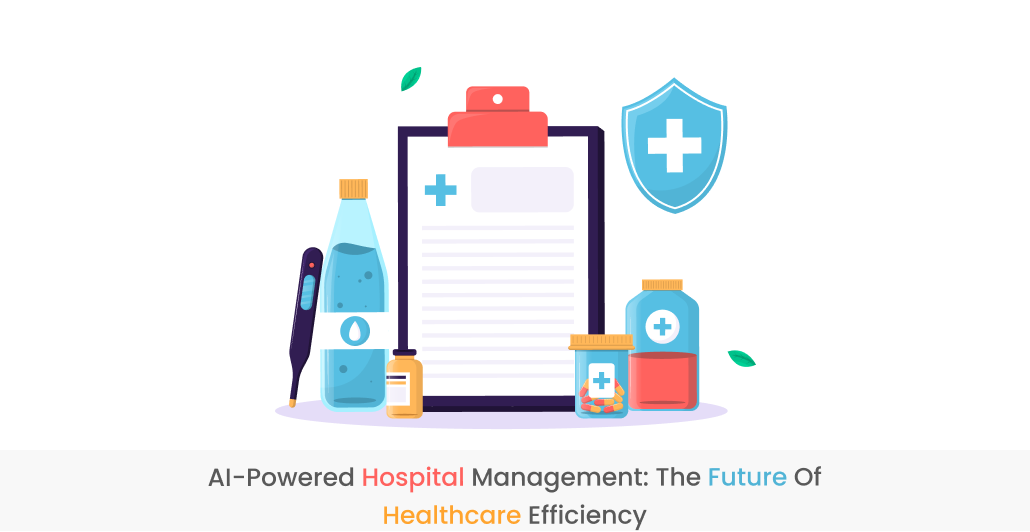Introduction
The application of Artificial Intelligence (AI) in hospital management is something that promises a different phase of health care altogether, one characterized by radically improved operational efficiencies, let alone patient care, due to the infusion of technology. Hospital Management Systems In Healthcare driven by AI are bringing a change in the very basic nature of how healthcare operations are done so that they become more streamlined and patient-centric. This paper dwells on the rapidly mounting role of AI in hospital management, underlining its full potential for revolutionizing patient care, operational efficiency, and accessibility to healthcare. We would now delve into the future of healthcare efficiency and AI is not just an adjunct, but a central cog in the machinery of the modern holistic hospital information management system and broader strategies for managing healthcare.
Revolutionizing Hospital Operations with AI
AI integration into the Hospital Management System has been a game-changer for any health facility. Integrated with AI, the systems now perform the simplest of administrative tasks, from appointment schedules to patient billing, allowing healthcare professionals to free time and dedicate efforts to their most important activity: assistance. It means that in one way or another, it enhances the hospital management system modules to work better, hence easing the supply chain management, processing of patient data, and even the finances of operations with fewer errors. For example, AI algorithms can make a time when the number of patients is going to increase, which will be of great help for hospitals to deploy their resources effectively without letting the well-being of the patients get compromised by resource crunch. The operational efficiency that was not possible at one point in time is today made possible through AI.
Enhancing Patient Care Through AI
Patient care is the nucleus of a health system. This is the domain that AI is developing very quickly. Hospital queue management systems, running on AI, optimize the patient flow rate so that waiting times are minimized, and the overall perception of service by patients improves. Clinic Management Systems leverage AI to offer personalized healthcare plans through data analytics that are applicable to tailor treatment to individual patient needs. This makes healthcare more effective at taking care of patients but also makes them happier with their outcomes. This results in AI having the capability to process large volumes of data, making real-time analysis of records possible. Therefore, health stakeholders can make informed decisions very fast, upscaling the quality of care to patients as well as running efficiency in facilities.
AI in Global Healthcare Management
Globalizing hospital management system online platforms are leaping toward universality in place of health care delivery. The global shift is identifying with countries that have adopted AI-powered systems for efficiency in health care delivery. A very good example is the hospital management system India where the integration of AI is transforming the system of accessibility to health and its management, even in the most interior places. These systems provide facilities for teleconsultation, real-time access to a patient's record, and effective management for the patient. In this way, e-health systems lead to equalization in access to health services for both rural and urban areas. Global adoption of AI in healthcare will, therefore, be a litmus test not only for scalability but how to meet diverse healthcare challenges, hence providing a tool in the quest to realize UHC and equitable healthcare services.
Key Advantages and Challenges
The greatest promise from these AI-assisted hospital management system advantages are improved operational efficiency, better patient care, and a data analytics tool that helps in predictive healthcare management. Artificial intelligence-based systems will reduce some administrative burdens, lower the scope of human error, and allow more time for delivering patient care. Similarly, the predictive abilities of AI can help in forecasting the trends in health care, further managing the resources and strategies better linked to preventive health care. The integration of these AI technologies in systems meant for healthcare does, however, bring with it a host of challenges before a seamless integration is possible. Some of the challenges may include the high costs of implementing sophisticated AI technologies, more so with issues of security for patient data, and the lifelong requirement of staff training in tune with the technological changes. Addressing these challenges is essential for harnessing the full potential of AI in healthcare.
Conclusion
AI-driven Hospital Information Management System is on the front line in changing efficacy and patient care in health-based organizations. However, indeed, the challenges are very much interrelated to the use of artificial intelligence in healthcare systems; at the same time, the potential associated benefits cannot be negated. As we tackle these challenges one by one, the future of healthcare undoubtedly portends a rosy sign with AI in the vanguard to improve an efficient, effective, and patient-centric healthcare model.
